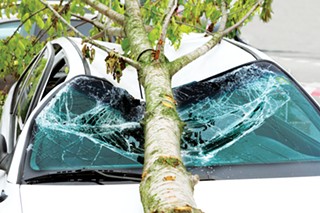State Rep. Will Guzzardi, D-Chicago, has introduced a bill that would prohibit auto insurers in the state from considering consumer credit information in setting rates. After a Feb. 28 hearing, the bill was sent to a subcommittee, a signal that it may not be considered by the full House this term.
If the measure were to pass, Illinois would join five other states that ban or limit insurance companies' use of credit scores in determining policy rates. Outside of those states the practice is common; Fair Isaac Corp. (FICO), which created the concept of credit-based insurance scoring, estimates that 95% of auto insurers use credit-based insurance scores as a factor in setting premiums.
In fact, Consumer Reports concluded in 2015 that, in some instances, a person with poor credit and a clean driving record pays more for auto insurance than the same person with excellent credit and a DUI.
Insurers say they use credit-based insurance scores because they are reliable predictors of the risk of loss. Andrew Perkins, a regional vice president for the National Association of Mutual Insurance Companies, said in a Feb. 17 email that "to provide competitive policies, insurers use risk-based ratings to predict potential losses and charge accurate prices to policyholders." He pointed to a 2007 study from the Federal Trade Commission that found that "scores permit insurance companies to evaluate risk with greater accuracy, which may make them more willing to offer insurance to higher-risk consumers for whom they would otherwise not be able to determine appropriate premium."
Insurers claim that the correlation between credit-based insurance scores and risk is positive and reliable. But that claim cannot be independently verified because FICO identifies more than 100 factors that could impact a person's creditworthiness, and insurance companies choose the factors to consider and how much weight to give them. Insurers are not required to reveal how they reach their conclusions on a customer's creditworthiness.
According to a 2006 study cited in the Federal Reserve Bulletin, (https://www.federalreserve.gov/pubs/bulletin/2014/pdf/2013_HMDA.pdf) one in five Black people have a credit score below 620, compared to 1 in 19 white people. Because of that, adverse insurance decisions based on credit scores can serve as a proxy for adverse decisions based on race, according to Guzzardi. He doesn't accuse insurers of discriminating intentionally, but says that even if the insurance industry is right that there is a positive correlation between bad credit and claims history, it is bad public policy to have a rule that raises premiums disproportionately for Black drivers. "What is more important," he asks, "insurance companies' ability to precisely assess the risk of someone filing a claim, or preventing racial discrimination? That's where the difference of opinion lies, and I look forward to the debate."
Perkins says the issue of fairness favors the insurance industry in this case. "If insurers are unable to utilize risk factors when determining rates, the result will be a one-size-fits-all approach to pricing, eliminating competition in the marketplace, and ultimately driving prices up for all consumers," Perkins wrote in an email last week. "As prices increase for all Illinois consumers, access and affordability will steeply decline."
Perkins also noted that since an insurer never knows for sure how much in claims a customer will make, "the actual cost of providing insurance is unknown at the time it is offered," making it critical that predictive models be as refined as possible, and "relying solely on an individual's driving history or prior claims is not enough to accurately predict future risk" and instead multiple factors must be used. "Fewer factors mean less accurate modeling of risk and less precise rate determination, resulting in some riskier drivers paying less and some safer drivers paying more."
In its 2015 study of auto insurance, Consumer Reports described the cascade effect of high auto insurance premiums on the poor. There are about 30 million uninsured drivers in America, and there is a strong correlation between poverty and the rate of uninsured drivers. The magazine concluded, "Taxing the poor through credit scoring and by other means not related to driving causes problems for all insured drivers, because painfully high insurance prices tempt financially strapped consumers to drive without insurance."
In 1989, California banned the use of credit scores as a factor in setting premiums for auto insurance. Consumer Reports found that premiums fell in the state from that year until 2015. The only other state that saw a fall in premiums was Massachusetts, which has a similar rule.
Don Howard is an intern at Illinois Times while completing his master's degree in Public Affairs Reporting at the University of Illinois Springfield. He can be reached at [email protected] or 336.455.6966.





















